Recently, in the Mong ethnic minority areas in some provinces in the North and Central Highlands, the activities of the "Gie Sua" and "Ba Co Do" cults have appeared. The "Gie Sua" and "Ba Co Do" cults have distorted the Bible to deceive and entice Mong ethnic minority people to participate in complex security and order activities; taking advantage of beliefs and religions to gather and develop forces to establish a "Mong State".
The leaders of the "Giê Sùa" and "bà Cô Dơ" cults abroad have thoroughly used methods and tricks through telephones, social networks, and online meeting software to direct key members in the country to actively propagate and attract Mong people to participate with the aim of inciting separatist and autonomous thoughts, gathering forces to establish a "Mông State". Although the authorities have organized propaganda and mobilization, there are still a number of Mong people who are influenced by the propaganda of the leaders outside, still secretly believing in and participating in the "Giê Sùa" and "bà Cô Dơ" cults on social networks or hiding in legal religious organizations to wait for a favorable opportunity to resume activities, complicating the security and order situation in the Mong ethnic minority areas.
So what is the nature of the activities of the "Gie Sua" and "Ba Co Do" cults? What will be the impact and influence of the "Gie Sua" and "Ba Co Do" cults in the Mong ethnic minority area?
The nature of the activities of the "Je Sua" and "Ba Co Do" cults
- Regarding the leaders: The "Gie Sua" and "Ba Co Do" cults were both founded by Mong people of Lao origin, American nationality, currently living in the US. The "Gie Sua" cult was founded by David Her (real name Ho Cha Sung, about 60 years old, Mong, hometown in Phong Xa Van district, Xieng Khouang, Lao PDR, currently residing in California, USA) in 2000 and began to impact and influence the Mong ethnic group in Vietnam at the beginning of 2015. David Her created the logo of the "Gie Sua" cult, including the word YESHUA at the top, a 6-pointed star in the middle with some motifs and below is the line "House of Healing", taking advantage of some sentences and articles in the Protestant Bible to compose the doctrine and canon of the "Gie Sua" cult and propagate it to the Mong ethnic group. Meanwhile, the heretical cult “Ba Co Do” (in Mong: “Pawg ntseeg vajtswv hlub peb” meaning “The Church of God Loves Us”) was founded by Vu Thi Do, born in 1977, a Mong of Lao origin, American nationality, currently living in Milwaukee, Wisconsin, USA and has been the “Chairman” since the end of 2016. Vu Thi Do has been propagandizing and attracting a number of Mong people living nearby to form a religious group and propagandizing and developing it in many countries, including Vietnam, through propaganda video clips on the social network YouTube to attract people to believe in it in order to establish a “separate State” of the Mong people.
- Regarding the participants and areas of operation of the cult: The participants of the cult "Gie Sua", "Ba Co Do" are mainly Mong people following Protestant sects such as: Vietnam Evangelical Church (North), Evangelical Missionary Protestant Church..., relatives and family members of the leaders and key members and a part of Mong people who lack knowledge and have economic difficulties, so they are easily lured and bribed. The areas of influence and operation of "Gie Sua", "Ba Co Do" are mainly in villages and communes in remote, isolated areas, border areas of the Northern provinces (Dien Bien, Lai Chau, Son La, Lao Cai, Yen Bai , Bac Kan...) and some provinces in the Central Highlands (Dak Nong, Dak Lak).
- Regarding the method of evangelization: Combining evangelization through the information technology system, also using local forces; the propaganda content both paints a hopeful vision such as following the religion without working but still having food, being happy, having land, and also uses threatening measures to create fear in believers. They propagate "a war is about to happen, God teaches to accumulate food, coal...", causing some households to believe in buying and hoarding food and coal in large quantities, causing panic among the people, affecting security and order. The leaders of "Ba Co Do" outside often use social networks (YouTube, Facebook) to post and share articles and video clips to propagate the "Ba Co Do" cult or set up secret societies through the Zoom application for people to participate in activities, propaganda, preaching about the Bible and directing activities in the country. The leaders abroad regularly guide, direct, and fund the core members in the country to use for the purpose of propaganda and development of heresy.
- Regarding scriptures: The "Ba Co Do" cult uses the Old Testament and New Testament, printed in Latin Mong script (new Mong script) and the common script used by Protestantism. In addition, some cases study the Bible and compile documents with content explaining the Bible in their own way to propagate and guide believers.
- Regarding doctrine and canon law: The heretical sects "Giê Sùa" and "bà Cô Dọ" have not yet formed their own system of doctrine and canon law, but mainly cut, copied, and distorted from the Bible. Those who propagate "bà Cô Dọ" deny the savior role of Jesus, only the second coming of Jesus is the true Lord. Vu Thi Do claims to be a prophet chosen by "God the Father" as a messenger to help manage affairs on earth. Moreover, she was also chosen by "God the Father" to give birth to the second coming of Jesus, named Nu-Long (the youngest son of Vu Thi Do) to save the Mong people and manage affairs on earth; followers of other religions will be banished to hell, those who follow the second coming of Jesus will go to heaven; when war breaks out, the second coming of Jesus will save the lives of believers and bring them to the land headed by the second coming of Jesus to live. The followers of “Ba Co Do” do not worship their grandparents and ancestors, do not acknowledge Jesus, only acknowledge the second coming of Jesus. The “Gie Sua” cult does not acknowledge the name of Jesus but calls him “Gie Sua”; does not acknowledge the characters Adam and Eve in the Bible but replaces them with other characters named “Chang Ong” and “Co Ia” according to Mong legend. David Her claims to be an angel (messenger), a messenger of Jesus and knows in advance the day of Jesus’ return and will be king of the Mong people, whoever believes and follows Jesus will have their own country; believes that Protestantism is not the religion of the Mong people, only Jesus is the religion of the Mong people. The followers of “Gie Sua” also do not worship their grandparents and ancestors, deny Jesus but only worship Jesus.
- Regarding activities: The followers of the "Jehovah" and "Ba Co Do" cults mainly practice their religion online; the subjects and followers use the social network Facebook, the Zoom application, and smartphones to meet, listen, and watch the leaders in the US preach live, using the New Testament and the Old Testament like Protestantism. When preaching, they quote entire Bible verses but explain them differently according to their own ideas. In addition, they also gather at the private homes of the leaders to practice their religion. The gathering places do not have a group leader, but many people take turns presiding over the activities.
The "Ba Co Do" cult does not celebrate Easter, but only celebrates Christmas on November 23 every year because it believes that this is the birthday of the second coming of Christ; it does not require followers to pay 10% of their income, but those who follow it will receive a share of the money sent back by those living abroad; the time of activities given by "Ba Co Do" is from 10pm on Saturday to 3am on Sunday, but in Vietnam, the groups usually have activities in the morning (7-9am) and afternoon (1-3pm) on Sunday. The "Gie Sua" cult does not celebrate Christmas and Easter, considering this a scam, and changes the day of activities from Sunday to Saturday morning every week with the reason that God worked and created the earth, sky, and all living things in six days, and on the last day God had to rest.
Negative impacts and influences of the "Gie Sua" and "Ba Co Do" cults in the Mong ethnic minority region
The introduction and development of the "Gie Sua" and "Ba Co Do" cults into the Mong ethnic minority areas in the Northern and Central Highlands provinces has had negative influences and impacts on the security situation, order, economic , cultural and social life in the area.
Firstly, the activities of the "Gie Sua" and "Ba Co Do" cults have affected the lives of ethnic minorities, destroying traditional cultural and religious values: Many people, after believing in the "Gie Sua" and "Ba Co Do" cults, have abandoned community cultural activities and the nation's good traditions; their psychology is in a state of confusion when the leaders of the "Gie Sua" and "Ba Co Do" cults regularly propagate about the end of the world, the return of Christ, war... People's daily lives are disrupted, creating paranoia that makes people not think about working and producing, focusing on developing the family economy, causing instability in political security, order and social safety.
Second, the activities of the "Gie Sua" and "Ba Co Do" cults have caused conflicts and divisions in national unity, within families and clans, between religions, and between a segment of the population and local authorities. The leaders of the "Gie Sua" and "Ba Co Do" cults often attack orthodox religions, disparage traditional customs of the Mong people; propagate to divide the Mong people from other ethnic groups, incite separatist and autonomous thoughts, and complicate security and order.
Third, the activities of the "Giê Sùa" and "bà Cô Dơ" cults have hindered the implementation of the Party's policies and the State's laws in the locality: The infiltration of the cults into the locality directly affects the implementation of the Party's and State's ethnic and religious policies. Some followers of the "Giê Sùa" and "bà Cô Dơ" cults have instructed how to deal with the authorities when invited to work, instructed how to collect information and documents, write reports for ill-intentioned foreign individuals and organizations, and propagandized followers not to get vaccinated against COVID-19 during the outbreak.
Fourth, taking advantage of the heretical cults “Gie Sua” and “Ba Co Do” to establish the “Mong State”. The nature of “Gie Sua” and “Ba Co Do” is an heretical cult, taking advantage of the characteristics of the Mong people to propagate and incite division between the Mong people and other ethnic groups; creating a flag, gathering separatist and autonomous forces to establish the “Mong State”. Typically, during the propaganda process, David Her incited Mong people in other countries, including Vietnam, to return to Laos to fight and build the “Mong State” in Xieng Khouang, Laos. The leaders propagandized: “God Jehovah has divided the country for the Mong people, but the Mong people are not united, so they are invaded by other countries; the Mong people do not have their own territory or state, and spend their lives working for other ethnic groups. In the near future, the Lord will return to be the king of the Mong people. Whoever believes in the Lord “Giê Sùa” will have their own country for the Mong people, and their life will be prosperous and happy…
The leaders of the "Gie Sua" and "Ba Co Do" cults in the US often propagate the argument that this is the orthodox religion of the Mong people; consider other religions as cults to divide the followers of the "Gie Sua" and "Ba Co Do" cults from other religions, gather forces, and form their own religion of the Mong people. The appearance of the "Gie Sua" and "Ba Co Do" cults is closely linked to the issue of the "Mong State" and recently, the subjects tend to use the cults as a form of Protestantism of the Mong people. This activity, along with the support of individuals, anti-government organizations from outside and some reactionary subjects in the Mong ethnic group, has many potential factors, causing complications in security and order in the Mong ethnic group area.
Ta Ngoc (According to cand.vn)
Source



![[Photo] 60th Anniversary of the Founding of the Vietnam Association of Photographic Artists](/_next/image?url=https%3A%2F%2Fvphoto.vietnam.vn%2Fthumb%2F1200x675%2Fvietnam%2Fresource%2FIMAGE%2F2025%2F12%2F05%2F1764935864512_a1-bnd-0841-9740-jpg.webp&w=3840&q=75)
![[Photo] National Assembly Chairman Tran Thanh Man attends the VinFuture 2025 Award Ceremony](/_next/image?url=https%3A%2F%2Fvphoto.vietnam.vn%2Fthumb%2F1200x675%2Fvietnam%2Fresource%2FIMAGE%2F2025%2F12%2F05%2F1764951162416_2628509768338816493-6995-jpg.webp&w=3840&q=75)





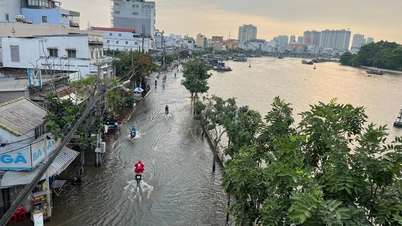

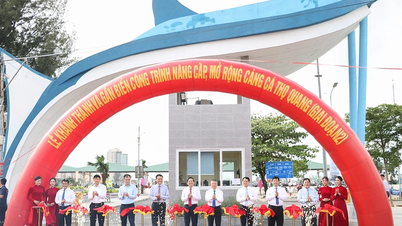












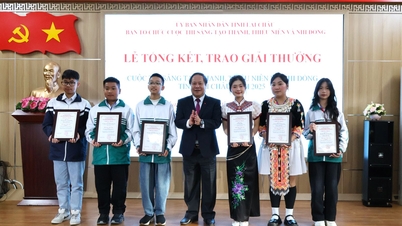

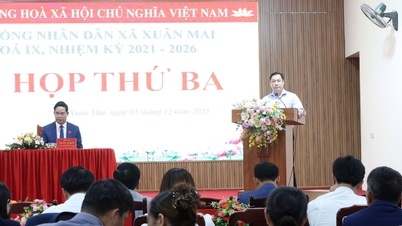














































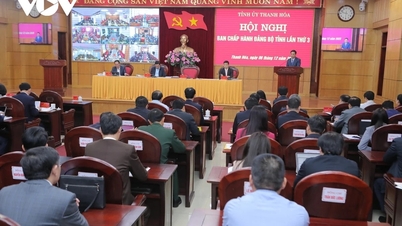
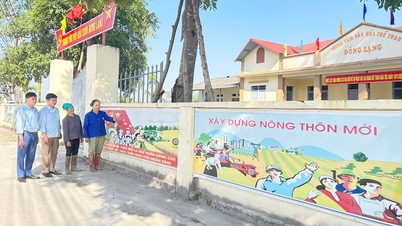

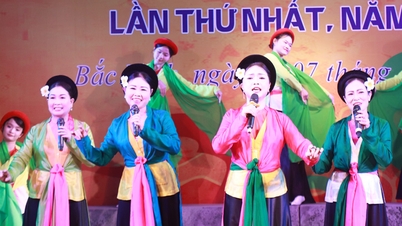
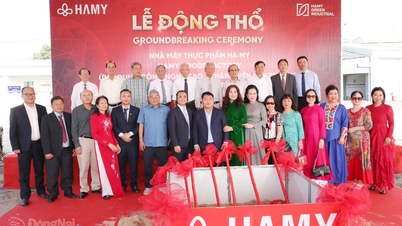

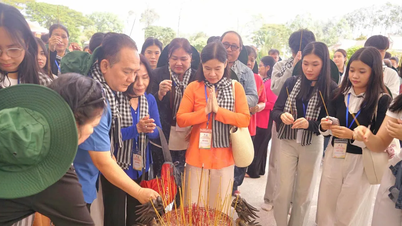
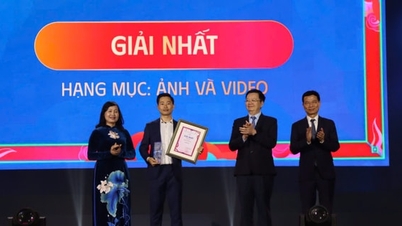










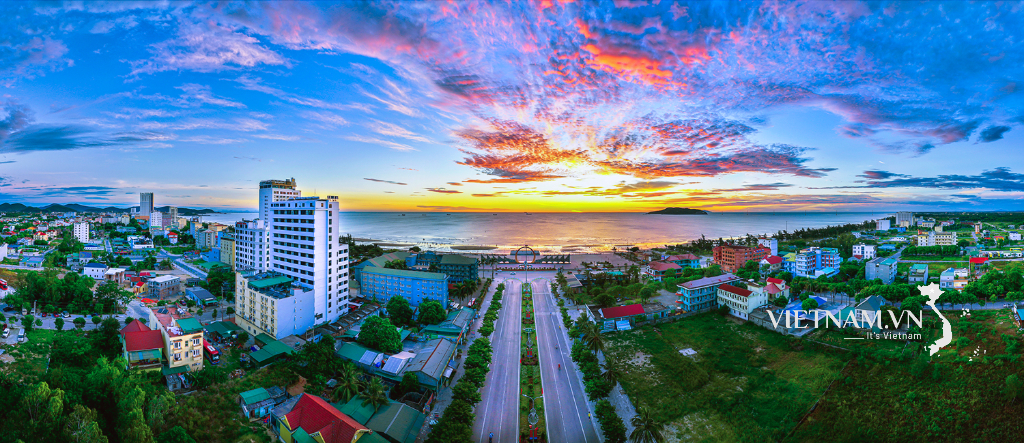

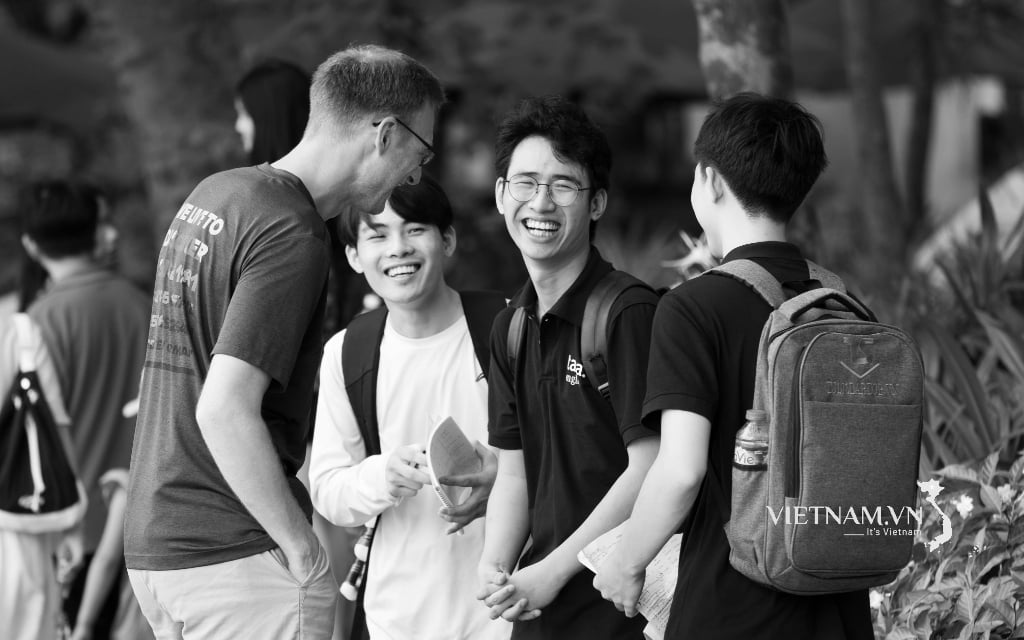





Comment (0)